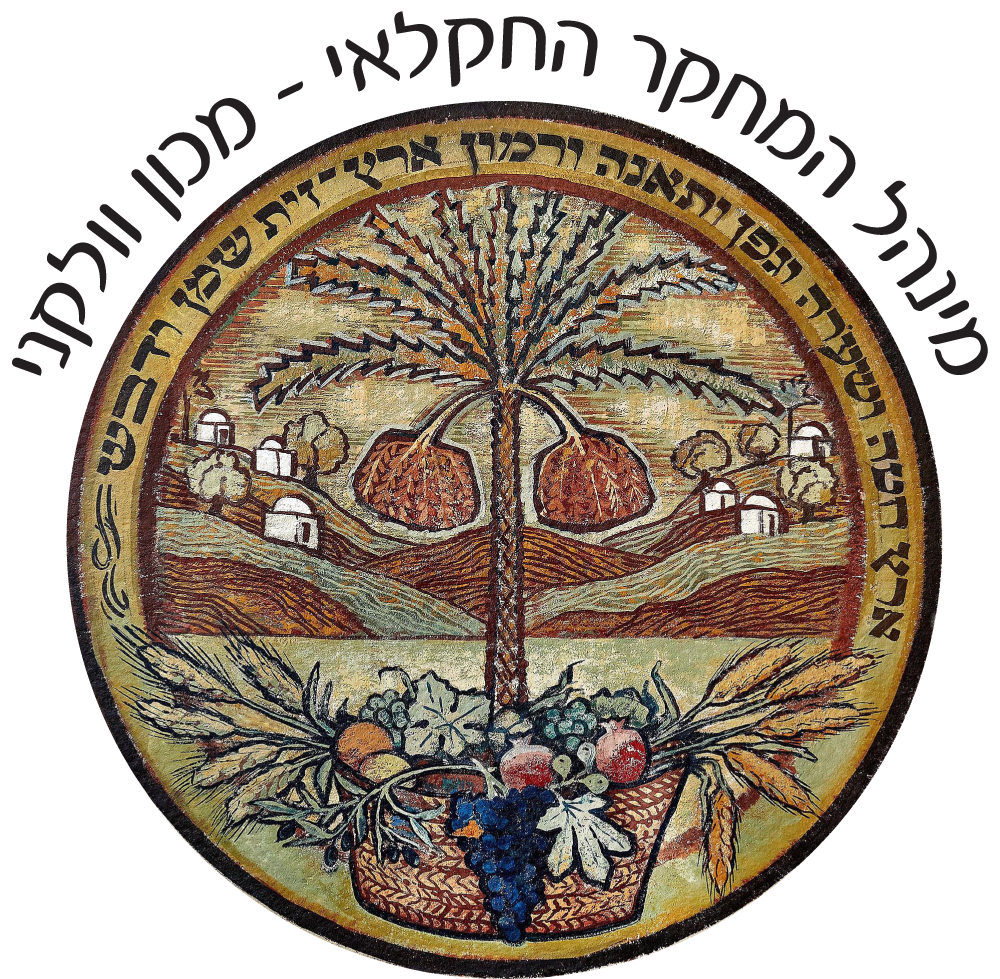The Agricultural Research Organization – Volcani Institute
The Agricultural Research Organization – Volcani Institute is the largest agricultural research institute in Israel, and one of the leading institutions of its kind worldwide.
It is an independent affiliate unit of the Ministry of Agriculture and Rural Development.
In 1921, Yitzhak-Avigdor Elazari-Volcani (also known as Wilkansky) established the Agricultural Experiment Station, which later evolved into the Agricultural Research Organization – Volcani Institute.
Volcani’s vision was to develop the foundations for an industrial, modern, and advanced agriculture, thereby leaving behind the traditional methods prevalent in the region. The Institute became his life’s work and subsequently developed into the main growth engine of Israel’s agriculture, both before and after the establishment of the State, and into a global hub of agricultural innovation.
Our vision is a sustainable, climate-adapted, data-driven, and precise Israeli agriculture. Our mission is to lead and excel in agricultural R&D and technological innovation, meeting Israel’s agricultural challenges in cooperation with all relevant partners, while building a strong local agriculture that serves as a global model.
Our goals include: developing solutions for agricultural challenges while considering the environment; generating knowledge and technologies that serve agriculture while preserving natural resources; training the next generation of agricultural experts; commercializing knowledge and technologies; producing data-driven decision-support tools and assisting in shaping evidence-based policy; achieving international leadership in agricultural R&D by forging strategic partnerships; and deepening collaboration with stakeholders along Israel’s agricultural value chain.
Today, six research institutes operate at Volcani’s main campus in Rishon LeZion:
- Institute of Plant Sciences
- Institute of Soil, Water and Environmental Sciences
- Institute of Animal Science
- Institute of Plant Protection
- Institute of Postharvest and Food Sciences
- Institute of Agricultural and Biological Engineering
Additionally, Volcani operates two research centers, located at Neve Yaar and Gilat.
The Institute comprises approximately 180 research groups, which conduct hundreds of research programs and publish around 300 scientific articles annually in international journals. In parallel, Volcani researchers supervise about 350 graduate students (M.Sc., Ph.D., and postdoctoral fellows) in their advanced degree research, and they also teach advanced courses in life sciences and agriculture at universities and colleges.
The Volcani Institute makes a major contribution to food security in Israel and worldwide. Its scientific infrastructure enhances the capacity of Israeli farmers to provide high-quality, sufficient produce for the domestic market and to compete in international markets. In recent years, the Institute has emphasized regenerative and sustainable agriculture, designed to ensure a balanced approach between open spaces, urban development, and agricultural lands for future generations.
To promote the application and commercialization of knowledge, Volcani operates KIDUM, its Knowledge and Technology Transfer Unit, which protects accumulated intellectual property and connects research with businesses that commercialize and distribute technologies and developments worldwide. To date, the Institute has registered over 150 active varieties and more than 180 patent families. Among the well-known varieties developed at Volcani are the Galia melon, Barnea olive, Shulamit and Henoch peanuts, Orri mandarin, Maya mango, and new wheat varieties.
Research teams at the Volcani Institute are currently developing unique fruit and vegetable varieties adapted to changing climatic conditions, without compromising quality or flavor. Scientists are advancing innovative irrigation methods that significantly reduce water consumption and expand the use of reclaimed (treated) wastewater. The Institute is also pioneering solutions for advanced postharvest storage and shelf-life extension, eco-friendly pest control, and maximizing milk yield while safeguarding animal welfare. Special emphasis is placed on developing automation and robotics to reduce agricultural labor, and on harnessing big data and artificial intelligence for precision agriculture.
The Volcani Institute is also home to the Israeli Gene Bank, which collects and preserves the genetic diversity of Israel’s flora for future agricultural, biotechnological, and biomedical applications. In addition, the Institute proudly maintains vast collections of living crops (The “Volcani Treasures”) including apples, pears, figs, mangoes, citrus, persimmons, lychees, avocados, olives, grapevines, almonds, pomegranates, apricots, pecans, plums, loquats, and quinces. Each collection includes dozens to hundreds of varieties, encompassing introductions, breeding program outputs, rootstocks, and ancient trees.
The Institute is also proud of its community outreach, led by its Youth Science Education Unit, which hosts thousands of students annually and trains hundreds of teachers through its Teacher Training Center for Agricultural Sciences.
